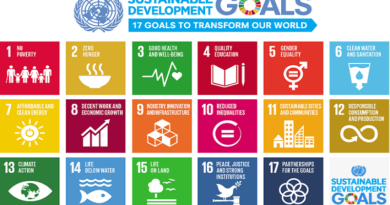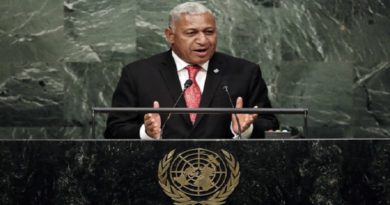Green Climate Fund announces support for adaptation, endorsement of COP initiatives
The Green Climate Fund (GCF) has set out how it is increasing the impact of its adaptation investments in support of new pledges, marking Food, Water, and Agriculture Day at COP29.
As the international community calls for greater ambition in adaptation and balancing investments between adaptation and mitigation, GCF is doing both across its portfolio.
The Fund: Has invested USD 7.3 billion in adaptation projects, which is currently around 55 per cent of its portfolio in grant equivalent terms.
Is allocating a floor of at least half of its adaptation investments to the most climate-vulnerable countries, including small island developing states (SIDS), least developed countries (LDCs) and African States, with 64 per cent of the adaptation portfolio currently allocated to that group of countries.
Works directly with a huge network of organisations, including 138 Accredited Entities, two-thirds of which are regional or national ‘direct access’ entities.
Is facilitating increased private sector investment in adaptation and has invested over USD 1.6 billion in private sector adaptation projects to date.
Speaking at the COP29 Presidency “High-Level Roundtable: Turning ambition into action: scaling up adaptation finance for achieving the Global Goal on Adaptation,” GCF Executive Director Mafalda Duarte outlined how the GCF portfolio is supporting adaptation, particularly for those most vulnerable to climate change.
“GCF has committed USD 7.3 billion to adaptation, reaching vulnerable communities like those in Vanuatu, where USD 32.7 million has supported adaptation for nearly 100,000 people. And in the past year, we more than doubled our financing for locally-led adaptation and reached more under-served countries, with first projects approved just last month for Somalia and Iraq,” stated Duarte.
Duarte also emphasised GCF’s role as a facilitator for scaled-up private sector investment in adaptation:
“Four years ago, our private sector adaptation financing was minimal. But since 2020, 40 per cent of our annual private sector investments have been channelled to adaptation, demonstrating private sector commitment and interest in adaptation. We’re proud to say that to date, our private sector facility alone has invested over USD 1.6 billion. We’re investing in water security, climate-smart agriculture, nature-based solutions, and resilient infrastructure. GCF’s USD 25 million equity in the Acumen Resilient Agriculture Fund in Africa has boosted productivity for over a million farmers. And our USD 235 million investment with the Development Bank of Southern Africa (DBSA) to create the South Africa Water Reuse Programme will transform water management by treating water as an asset class and leveraging private sector investment.”
GCF’s adaptation investments are flexible and highly innovative. Grants comprise 42 per cent of its portfolio, and its support for locally-led adaptation projects doubled in 2024. The Fund has also invested in underserved countries, with first-time projects in Angola, Azerbaijan, Iraq, and Somalia approved last month.
GCF’s innovative portfolio of equity investments in agriculture businesses builds resilience and supports economic development, jobs and livelihoods. In addition, the Fund’s investments have created new asset classes, such as the South Africa Water Reuse Programme, and supported innovations, such as debt-for-climate swaps in Barbados.
GCF supports two of the COP 29 Presidency’s key initiatives to scale up adaptation: the COP29 Declaration on Water for Climate Action and the Baku Initiative on Human Development for Climate Resilience.
The COP29 Declaration on Water for Climate Action closely aligns with GCF priority to catalyse transformational change in water security and mobilise climate finance at scale. The Fund is uniquely positioned to drive paradigm-shifting investments in this sector through innovative financing mechanisms and enhanced private sector engagement.
The Baku Initiative on Human Development for Climate Resilience aims to enhance intersectoral synergy and complementarities between education, health, social protection, skills and jobs, focusing on women, children and youth. The multi-sectoral approach is aligned with GCF’s mandate to fund projects that strengthen climate resilience across multiple areas, including health and human capacity.
The Baku Initiative’s focus on just transitions and social dialogue aligns with GCF’s mandate to support a sustainable and fair shift to nature-positive, climate-resilient economies.
GCF will support the initiative by bridging financing gaps in human development sectors critical to sustainable adaptation. The Fund will strengthen its broad range of partnerships and create new coalitions that enhance coordinated, country-focused climate actions. This includes building on its partnership with the Global Fund to identify synergies and leverage complementarities to meet the critical funding needs of the most vulnerable countries to manage climate risks to health systems and programmes.




